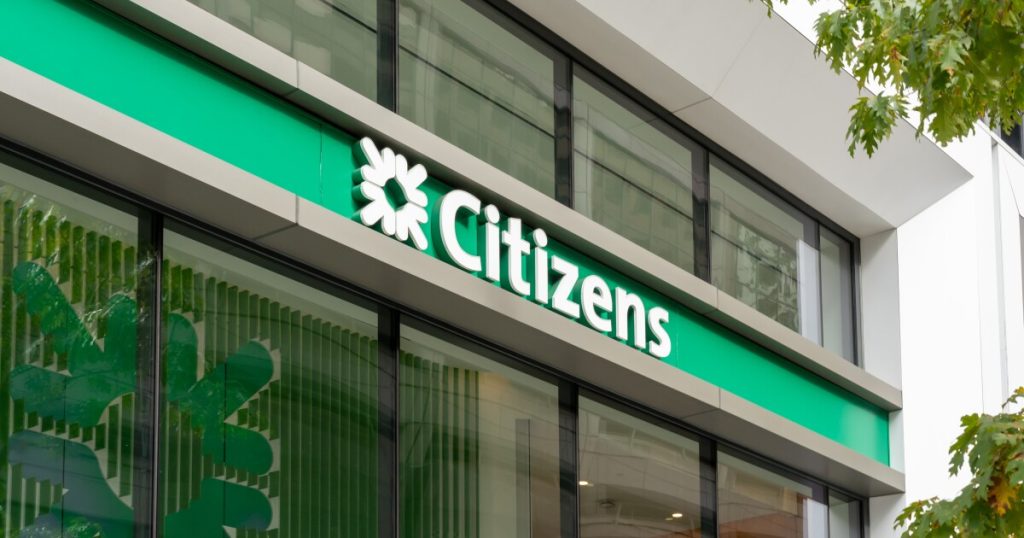Citizens Bank hit Wall Street’s earnings targets for the first quarter and announced a deal to sell about $1.9 billion of its student loans.
About $200 million of non-core student loans were settled in the quarter, with the rest to be settled later this year, the Providence, Rhode Island, bank said. The student loan transaction helped push average loans for the quarter down 4% from a year ago to $139.7 billion.
“We struck an agreement to sell our purchased student loan portfolio, accelerating non-nore rundown and freeing capital and liquidity,” CEO Bruce Van Saun said in a statement Wednesday.
Earnings per share were 77 cents, slightly above analysts’ average estimate of 75 cents, according to S&P. Revenue was $1.94 billion, matching analysts’ expectations, per S&P.
Net income was $373 million, up 12% from the first quarter of 2024.
“We were pleased with our execution in Q1 as we delivered financial results in line with our expectations, as well as strong progress on our strategic initiatives like the Private Bank/Private Wealth buildout,” Van Saun said.
Citizens launched Citizens Private Bank in 2023. In this year’s first quarter, deposits at the unit grew by $6.3 billion from the prior year. Total deposits for the bank during the period were $177.6 billion, a 1% increase year-over-year. Citizens’ average deposits fell 2% from a year ago to $172.7 billion.
In his statement, Van Saun also alluded to the recent tumult over U.S. trade policy. In recent months, the Trump administration
“While the second quarter has seen heightened uncertainty given policy decisions in Washington, we believe we will be able to successfully navigate through the challenges given our strong business positioning and our financial and operating discipline,” Van Saun said.
Citizens reaffirmed its 2025 outlook, which includes expectations of 3%-5% net interest income growth, but noted that could change “if current macro challenges persist.”
Citizens is a regional bank with $220.1 billion in assets and about 1,000 branches across 14 states and the District of Columbia.
It also has a long and complex history. The story began 1828, when the now-defunct High Street Bank was founded in Providence, Rhode Island. In 1871, High Street established Citizens as its own savings bank, which expanded across Rhode Island over the next century.
In 1988, Citizens was purchased by the Royal Bank of Scotland. With RBS’ backing, Citizens then embarked on a spree of acquisitions, absorbing six other banks over the next two decades.
Then the global financial crisis hit, and in 2008 RBS was nationalized by the British government. This led to public pressure for the bank to spin off its American subsidiary, which it did through an initial public offering in 2014. The new Citizens Financial Group stock raised $3 billion, making it the
